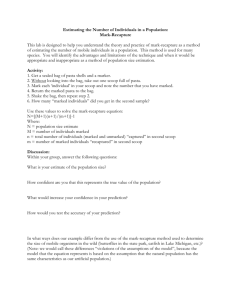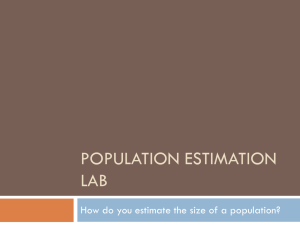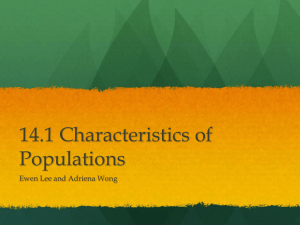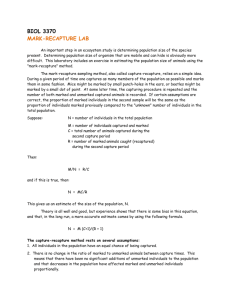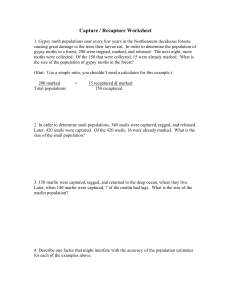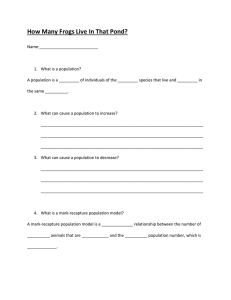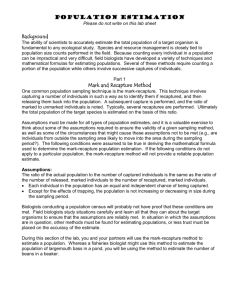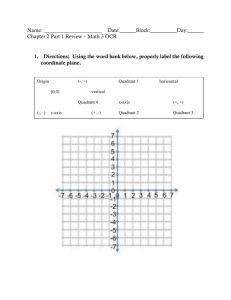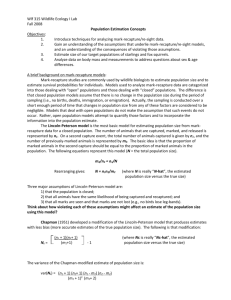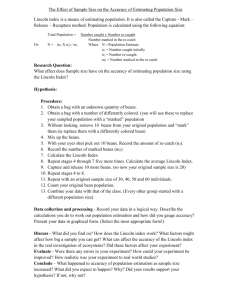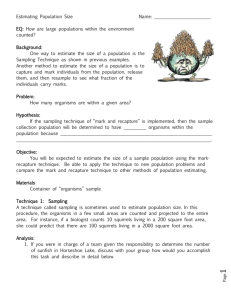File
advertisement
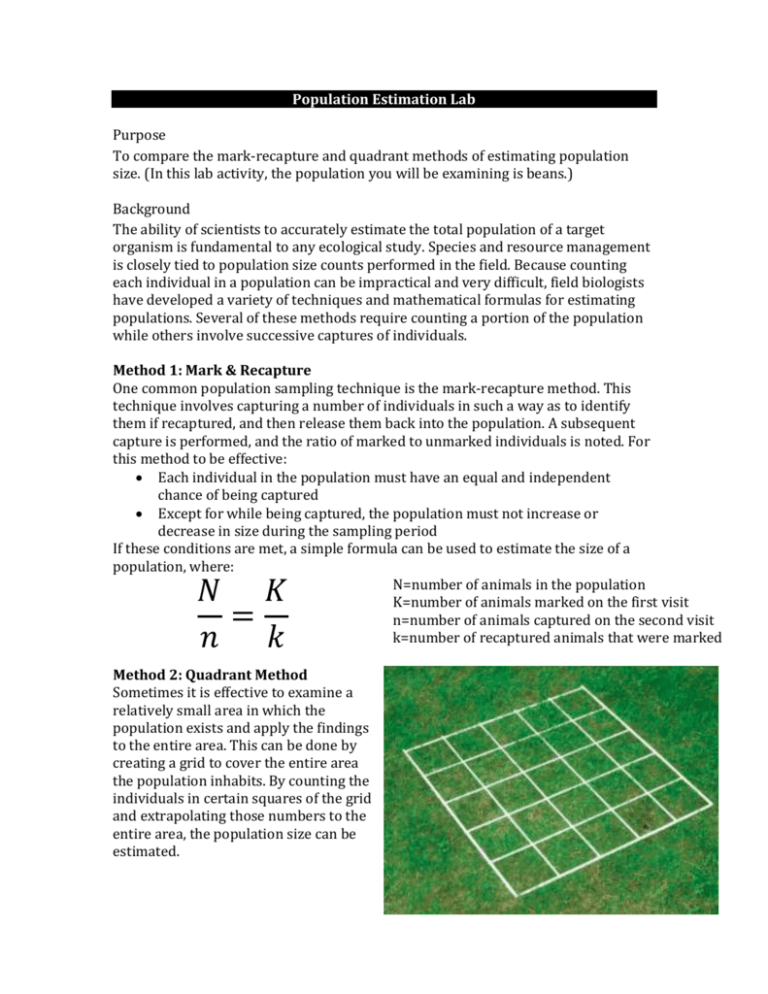
Population Estimation Lab Purpose To compare the mark-recapture and quadrant methods of estimating population size. (In this lab activity, the population you will be examining is beans.) Background The ability of scientists to accurately estimate the total population of a target organism is fundamental to any ecological study. Species and resource management is closely tied to population size counts performed in the field. Because counting each individual in a population can be impractical and very difficult, field biologists have developed a variety of techniques and mathematical formulas for estimating populations. Several of these methods require counting a portion of the population while others involve successive captures of individuals. Method 1: Mark & Recapture One common population sampling technique is the mark-recapture method. This technique involves capturing a number of individuals in such a way as to identify them if recaptured, and then release them back into the population. A subsequent capture is performed, and the ratio of marked to unmarked individuals is noted. For this method to be effective: Each individual in the population must have an equal and independent chance of being captured Except for while being captured, the population must not increase or decrease in size during the sampling period If these conditions are met, a simple formula can be used to estimate the size of a population, where: N=number of animals in the population K=number of animals marked on the first visit n=number of animals captured on the second visit k=number of recaptured animals that were marked 𝑁 𝐾 = 𝑛 𝑘 Method 2: Quadrant Method Sometimes it is effective to examine a relatively small area in which the population exists and apply the findings to the entire area. This can be done by creating a grid to cover the entire area the population inhabits. By counting the individuals in certain squares of the grid and extrapolating those numbers to the entire area, the population size can be estimated. Question Which method of estimating population size will yield a more accurate result? Lab Report In a formal lab report, please include the following sections: Objective ( /1) Hypothesis ( /1) Materials ( /1) Procedure ( /4) Results ( /2) Analysis ( /2) o Compare your results to the “true” number of beans in your sample. Use the formula below to calculate the error of each method. % 𝐷𝑖𝑓𝑓𝑒𝑟𝑒𝑛𝑐𝑒 = |𝐸𝑥𝑝𝑒𝑟𝑖𝑚𝑒𝑛𝑡𝑎𝑙 𝑉𝑎𝑙𝑢𝑒 − "𝑇𝑟𝑢𝑒" 𝑉𝑎𝑙𝑢𝑒| 𝑥100% 𝐸𝑥𝑝𝑒𝑟𝑖𝑚𝑒𝑛𝑡𝑎𝑙 𝑉𝑎𝑙𝑢𝑒 + "𝑇𝑟𝑢𝑒" 𝑉𝑎𝑙𝑢𝑒 2 Follow Up Questions ( /2) 1. List three populations that the mark-recapture technique would work well for. Why is this the case? 2. List three populations that the quadrant method would work well for. Why is this the case? Conclusion ( /1)
